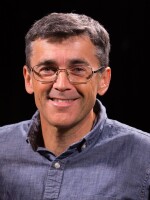Residents of Appalachian coal communities told a Congressional subcommittee Tuesday that the controversial mining practice known as mountaintop removal should be halted until its health effects are better studied.
Late in the Obama administration, the National Academy of Sciences launched a study into the health effects for communities near mountaintop removal coal mines.
Donna Branham of Lenore, West Virginia, was among the many residents with questions and concerns about effects on air and water quality. She was hopeful the National Academy study would bring some answers. But in the summer of 2017, the Trump administration’s Interior Department abruptly canceled funding and ordered the National Academy to halt the study.
“We felt abandoned, we felt as if our lives didn’t matter,” Branham told lawmakers.
Branham was one of four witnesses from Kentucky and West Virginia who told members of the House Natural Resources Committee that the National Academy study should continue. Until such a study is complete, they argued, regulators should place a moratorium on mountaintop removal mining.
Former coal miner Carl Shoupe of Benham, Kentucky, organizes for the citizens’ action group Kentuckians for the Commonwealth. He said mining also threatens cultural and natural areas that could be part of the region’s new economy.
“As we speak, a coal company is seeking a permit to strip mine the ridge behind my home,” Shoupe said. “They plan to go up the entire valley.”
West Virginia University Environmental Health Professor Michael McCawley pointed to what he called strong evidence linking the mining practice to a variety of negative health effects.
Several studies show a correlation between mountaintop removal and high rates of illnesses in neighboring communities. McCawley said his work on air quality near mines also shows high levels of fine particulate matter, which are known to present health hazards.
“In my opinion, these independent studies should allow the conclusions to be considered more than simply correlative,” he said. “They should be considered causal.”
McCawley said he thinks that mounting evidence of health effects is what motivated the Interior Department to cancel the study.
“I think they believed that the study was going to come out with evidence that supported banning mountaintop mining, that they knew what the evidence was,” he said.
Kentucky Rep. John Yarmuth, a Democrat who represents the Louisville area, also testified about his legislation, the Appalachian Communities Health Emergency Act, which would ban new permits for the mining practice until a comprehensive health study is completed.
Kentucky Coal Association President Tyler White countered that Yarmuth’s bill is too broadly worded and would have negative economic effects.
“This would effectively delay or halt coal production throughout Appalachia and set a staggering precedent that could affect mining nationwide.”
Arizona Rep. Raul Grijalva, the Arizona Democrat who chairs the committee, said in an interview with the ReSource that the Interior Department had declined to answer requests for information and declined to send a representative to answer lawmakers’ questions. Grijalva said his committee is considering using its subpoena power to get documents relevant to the department’s decision to cancel the National Academy study.
“We’re being very diligent in the way that we’re doing it. We want to make sure that our subpoenas have standing,” he said. “When we do it, it’ll mean something.”
ReSource reporter Sydney Boles contributed to this story.





